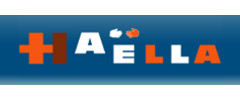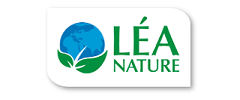Activities related to Water Safety Plans in 3 project communities in Azerbaijan
“Community approaches to a better environment for all and poverty reduction in out of reach communities of rural Azerbaijan“
11.10.2011 |Bistra Mihaylova

Training on Water Safety Plans in Shamakha region
In 2010 together with TAMK university of Applied science, WECF and EKOT performed 3 days training on Water Safety Plans in the regions Shamakha, Sabirabad and Saatli. More than 50 participants took part in this - teachers, representatives from medical centres and citizens from the project communities. The trainer was Anna Samwel who is WECF regional consultant for Caucasus and Eastern Europe. The approach of Water Safety Plans (WSP) was introduced to the teachers of 6 villages and how to develop WSP for their local water sources together with the pupils. The target villages depend for their drinking water on untreated water of the Kura river, provided by trucks to the villagers. For irrigation purposes water from channels fed by the Kura river and shallow wells is used.
During the whole school year the teachers together with children performed several activities, as measuring the nitrate concentration of the water sources in each village. Every pupil had a territory for monitoring the water quality of the irrigation channels and wells. The children had an excursion to the boarder with Iran where a part of the water of Araz river is distributed by channels to the irrigation channels in each community. Maps were developed by the pupils and the teachers with main water sources in each community. The children have noticed, that the level of nitrates in the irrigation channels are partly higher than the one of the well waters. The nitrate concentration of the irrigation channels increased in springtime. All measured nitrates were under the norm or just reached the norm of 50 mg/l.
Despite no extremely high nitrate levels were identified, unfortunately water sources with safe drinking water in the regions in which WECF and EKOT work, are rarity. The quality of the well water is not good. The water has a high salinity and after tests done throughout the project, the results show microbiological contamination which exceeds the norms for bacteria several times. Also by the authorities provided river water intended for drinking and washing purposes, have a high turbidity and bacterial contamination.
The schools identified the main sources of pollution of the river and channel water: domestic waste, manure and probably the usage of fertilizer. Further the schools identified a correlation between the nitrate concentration of well water and the proximity of the pit latrine.
Within the WSP activities citizens and health authorities were interviewed about their perception of the local drinking water. According to their responses, the citizens are dissatisfied with the quality of water, as a result many diseases (diarrhea, thyroid diseases, etc) occurred in the villages due to poor water quality.
The highest priority of the villagers is having safe centralized drinking water.
As a short term solution, WECF project team has brought some filters for removing particles and microorganism from the water and were distributed in 5 schools and 5 households.
Although, finally it should be also the task of the national and/or regional authorities to enable access to affordable and safe drinking water to the rural villages.
The Ministry of Environemnt of Azerbaijan is aware of the program and the activities going on in the regions and has expressed their support for implementation of the Water Safety Plans.
The findings and results of this and other activities among the project will be presented during the National Conference which will take place in the end of November 2011.
For more information about the project, please visit EKOT's webpage: www.ekot.az and the project page on the WECF website
Related News
Gronings Water Bedrijf (Water Company) and WECF continue cooperation to distribute tulip water filters in rural Azerbaijan
WECF and its partners in Azerbaijan Independent Consumer Union and EKOT, received a donation of 8700 Euro, enabling citizens of rural areas having access to safe water.
23.02.2012 | Margriet Samwel
Case Study 'No Safe Drinking Water for the Region Sabirabad, Azerbaijan'
Findings of the issues drinking water and sanitation of the 2-years WECF project implemented in the rural areas of Azerbaijan
20.02.2012 | WECF
Activities related to Water Safety Plans in 3 project communities in Azerbaijan
“Community approaches to a better environment for all and poverty reduction in out of reach communities of rural Azerbaijan“
11.10.2011 | Bistra Mihaylova
Two fruit dryers constructed and installed in the villages of Sabirabad and Saatli
“Community approaches to a better environment for all and poverty reduction in out of reach communities of rural Azerbaijan“
27.06.2011 | Anna Samwel
Community approaches to a better environment for all and poverty reduction in out of reach communities of rural Azerbaijan
Practical training how to construct solar collector, fruit dryer and solar distiller was carried out in project regions in Azerbaijan
10.08.2010 | Anna Samwel





































